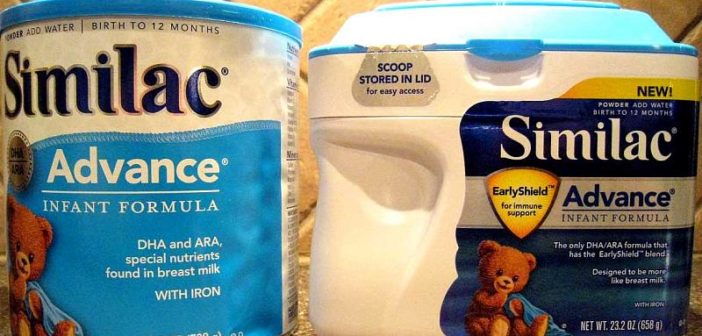Over the last few months, fake infant formula has been in the spotlight as rumors of fake infant formula surfaced. The authorities have confirmed that thousands of infant formula products masking as Similac and Beingmate were sold in seven provinces. While the gang and ringleader have been apprehended, some of their fake products are still unaccounted for.
The gang had been producing fake infant formula since 2014. When arrested, the Shanghai police seized:
- 1,000 cans of fake Similac
- 20,000 empty cans to be filled
- 65,000 fake Similac labels to be pasted
The police confirmed that at least 3,300 cans of Similac are unaccounted for, while a vendor has also admitted to selling at least 3,600 cans of fake Beingmate infant formula.
Unlike the 2008 milk scare, when the infant formula produced by Sanlu Group was found to contain melamine, these cans of fake infant formula are not deadly. The ring mixed authentic Similac and Beingmate with a cheaper domestic brand.
However, China-based parents are still wary of locally manufactured infant formulas. Instead, families have resorted to purchasing imported formula brands from reliable vendors.
Many international families will bring cans of infant formula from their home visits and vacations. Some will have friends buy them from their trips abroad (daigou). Others even have friends and relatives send in a shipment every few months.
Perhaps due to the recent arrests, China Food and Drug Administration (CFDA) has drafted its strictest infant formula regulations yet. CFDA published the new food and safety law on June 6th, as a follow up to their 2015 edition. The new regulations will be effective as of October 1st, 2016.
Highlights of the 2015 Registration Measures and new Food Safety Law regulated:
- Both domestic and foreign produced infant formula must be registered with CFDA.
- Domestically produced infant formula must be screened during registration.
- Must provide a product sample
- Indicate authentic origin:
- Raw material
- Food additive
- Formula
- Avoid ambiguous terminology:
- “imported milk source”
- “from foreign pastures”
- “imported milk”
- “ecologic pasture”
- “imported raw materials”
- No exaggeration, false advertising, or wrong labeling:
- “no additives”
- “good for brain”
- “protect intestinal tracts”
- “improves immunity”
Highlights of the 2016 Registration Measures:
- No distinction between regulations on import and domestic infant formula. Imported infant formula subjected to the same quality screening process upon registration as domestic products.
- Each company is limited to three formula brands and nine product formulas, which is important because…
- China sells over 2,000 different infant formulas, but only has…
- 103 infant formula powder manufacturing enterprises
- The new regulation will reduce the formula market by two thirds
- A quarter of milk powder companies are expected to go out of business
- Import formula brought in through cross-border e-commerce retailers will also require the new permit
- Dairy enterprises have one year to adjust. They must receive their permit by January 1st, 2018.
The CFDA aims to control the quality of both domestically produced and foreign import infant formula. In good time, too, as China now encourages more births with the second child policy.
Photo: Flickr




